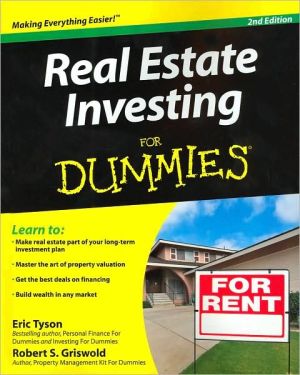Shift: How Top Real Estate Agents Tackle Tough Times
NEW YORK TIMES BESTSELLER WALL STREET JOURNAL BUSINESS BESTSELLER USA TODAY MONEY BESTSELLER "Tough times make or break people. My friend Gary teaches you how to make the tragic into magic. Read & reap from this great book."--Mark Victor Hansen, Co-creator, #1 New York Times best selling series Chicken Soup for the Soul Co-author, Cracking the Millionaire Code, The One Minute Millionaire, and Cash in a Flash. Author, Richest Kids in America "Real estate buyers and sellers have to SHIFT...
Search in google:
NEW YORK TIMES BESTSELLERWALL STREET JOURNAL BUSINESS BESTSELLERUSA TODAY MONEY BESTSELLER"Tough times make or break people. My friend Gary teaches you how to make the tragic into magic. Read & reap from this great book."—Mark Victor Hansen, Co-creator, #1 New York Times best selling series Chicken Soup for the SoulCo-author, Cracking the Millionaire Code, The One Minute Millionaire, and Cash in a Flash.Author, Richest Kids in America"Real estate buyers and sellers have to SHIFT their mindset to new and more creative strategies in this challenging real estate market. This book shows them excellent ways to survive and thrive."—Robert Allen, author of the New York Times bestsellers Nothing Down, Creating Wealth, Multiple Streams of Income and The One Minute Millionaire."Change happens. It's natural. It's ever present. It's reoccurring. So when markets shift you need to as well. No one explains this better in the real estate industry than my good friend Gary Keller and his team of talented co-authors. Their latest book, SHIFT, is perfect for all real estate professionals. It captures the very essence of a shifting housing market and what Realtors need to do to thrive therein. SHIFT will help you alter your focus and your actions to ensure that you get your head back in the game and increase your market share, irrespective of strong or weak market conditions. It's a great book – read it today."—Stefan Swanepoel, author of Swanepoel TRENDS Report, 2006-2009"Need help weathering the storm in today's real estate market? If so, reach for Gary Keller's new book, Shift— it's the lifesaver you need today to thrive tomorrow. Shift is rich in easy-to-understand strategies, charts, and illustrations that show you exactly what you need to do to thrive in today's very challenging and 'shifted' real estate market."—Bernice Ross, Inman NewsThe Millionaire Real Estate SeriesMore than 1,000,000 copies sold!SHIFTS happen…Markets shift, and you can too. Sometimes you'll shift in response to a falling market, and other times you'll shift to take your business to the next level. Both can transform your business and your life. You can change your thinking, your focus, your actions, and, ultimately, your results to get back in the game and ahead of the competition. The tactics that jump-start your business in tough times will power it forward in good times. No matter the market-shift!SHIFT explores twelve proven strategies for achieving success in any real estate market, including Master the Market of the Moment: Short Sales, Foreclosures, and REOs Create Urgency: Overcoming Buyer Reluctance Re-Margin Your Business: Expense Management Find the Motivated: Lead Generation Expand the Options: Creative FinancingGary Keller launched his sales career and later Keller Williams Realty International during two of the worst downturns in the recent history of the real estate market. With SHIFT, Gary and coauthors Dave Jenks and Jay Papasan deliver an authoritative resource for surviving and thriving in a shifted real estate market and the latest book in the bestselling Millionaire Real Estate Series.
SHIFT\ HOW TOP REAL ESTATE AGENTS TACKLE TOUGH TIMES \ \ By GARY KELLER DAVE JENKS JAY PAPASAN \ McGraw-Hill\ Copyright © 2009 Rellek Publishing Partners, Ltd.\ All right reserved.\ ISBN: 978-0-07-160526-7 \ \ \ Chapter One\ PART ONE THE MARKET SHIFTS\ SHIFTS HAPPEN\ Real estate is a cyclical business. What goes up must come down. And what is down won't stay there. Shifts are never unexpected but rarely predictable. You know one is coming. You just don't know when. They are, in fact, inevitable—shifts happen.\ But we forget. Each time a shift occurs, we act surprised, as if it had never happened before. Once the shift is over, we act as if it'll never happen again. It's like we have amnesia. And that's odd since we deal with something similar every year. It's called seasonality—the seasonal cycle of sales that repeats each and every year. From month-to-month there is an ebb and flow to the real estate business. Within each year, there is a time to make money and a time to save money. It is so natural most simply take it in stride.\ There is a natural buildup of listing inventory from January through April and an offsetting decline in inventory from May through October, with an up tick in sales at the end of the year. This seasonal cycle of sales causes a corresponding seasonal cycle of income.\ For real estate agents, these graphs are a heads-up and give meaning to the phrase "make hay while the sun shines." The fact is, every year, real estate agents have to deal with the seasonal sales cycle and its impact on their cash flow.\ While seasonal cycles occur within a single year, economic shifts happen over several years. Seasonal market cycles are month-to-month and economic market shifts are year-to-year. Just as the seasonal cycles dictate a rise and fall to your income over a period of months, the larger economic shifts create a rise and fall to your income over a period of years. Seasonal cycles feel predictable, short-term, and manageable. Economic shifts feel unpredictable, indefinite, and overwhelming. One feels like business as usual and the other feels, well, downright scary.\ The real estate industry has learned to live with regular seasonal cycles, but it is always challenged by irregular economic shifts.\ THE ANATOMY OF A SHIFT\ Shifts are easy to understand. They occur whenever supply and demand move out of balance. When seller supply exceeds buyer demand, it's a buyers' market. When buyer demand exceeds seller supply, it's a sellers' market. A shift occurs when the market moves from one to the other. Think of it this way. If over time more listings are selling, you're moving toward a sellers' market. If over time fewer listings are selling, you're moving toward a buyers' market.\ Why does the shift to a buyers' market create pain? Two reasons. First it leads to fewer sales and less available sales income in your market. Second it tends to be abrupt and precipitous. The misleading aspect of an economic shift is that it seems relatively natural and gradual when looked at nationally. When experienced locally it is usually dramatic and fast.\ The national perspective rarely, if ever, matches the local experience. The hard truth is local market shifts are seldom slow and local landings are almost never soft. It's a lot like a pendulum or a golf swing, beginning relatively slowly but accelerating very quickly through the middle. Some local shifts can actually take your breath away.\ Several factors can cause an economic shift. Currency exchange rates and political climate are the primary global factors. On a national level it's interest rates and inflation. Population, jobs, and household income take center stage at the city level. And at the most local level, it's neighborhood dynamics and housing prices. All of this simply boils down to buyer demand, which is driven by affordability and perception—how many buyers can afford to buy and how many think it's a good time to buy.\ So are shifts bad? Well, it depends. For the real estate industry in a particular market, it certainly can be—the available income for everyone in that market has dropped. For any single individual in their local market, it doesn't have to be—there is still enough available income for them to achieve their goals. The challenge for individual agents? Fear and how they will respond to it.\ When shifts occur, fear runs rampant, although not everyone responds in the same way. Some individuals, though they do feel the fear, also know they are in an equal opportunity, unequal reward business. It's really the 80/20 rule at work—20 percent of the people will do 80 percent of the business in any entrepreneurial endeavor. Those who understand this know that they must be better than average to earn the better than average rewards. If individuals understand a shift or have actually experienced one, they know they have to push past the fear and face two tests—first to survive and then to thrive. They have to hang tough until the Law of Equilibrium reasserts itself. Then it's opportunity time.\ THE LAW OF EQUILIBRIUM\ THE LAW OF EQUILIBRIUM is as old as the real estate industry itself. It is simple and straightforward. The law states that the available income in a market determines the number of agents in that market. As the number of transactions rises, so does the number of agents. Conversely, when the number of available transactions falls, so does the number of agents. People are attracted to the industry by the perceived income opportunity and driven out by the reality of the competition for it.\ Since perception tends to trail behind reality, two lag periods show up in every economic shift—the down-lag and the up-lag. The down-lag occurs because the number of agents doesn't decline until the number of transactions has already been dropping for some time. The low point of income opportunity then occurs when the most agents are chasing the least amount of income. The up-lag works in reverse when the transactions increase. The high-income opportunity point occurs on the way up when the fewest agents are chasing the most amount of income.\ With relatively few barriers to entry the real estate industry can become flooded with practitioners during a prolonged sellers' market (an upshift). Larger and larger numbers of agents are attracted to the industry and this increases the competition for the existing business. When the amount of business then declines (a downshift) the competition becomes untenable. There are more people but less business and fewer deals. Fewer deals mean less money and less money means lower income for everyone—and eventually it means fewer people doing business. If you can ride out (survive) this initial lag period as more and more people get out of the business you can find yourself in a less competitive market. There is now more business relative to the number of people working to get it. This is the time to thrive.\ How long it takes to get from survive to thrive can vary greatly from time to time and from person to person. There is the market's shift and its lag time, and then there is your shift and your lag time. If you don't shift fast, your lag time will parallel the market and you may be at risk. To thrive in the upshift you must first survive the downshift.\ Let's be clear here—there is nothing that says that an agent cannot thrive before the market upshifts. In fact, we have known and worked with many agents who had their best years in a "down market." This book is based on the lessons learned from those agents who have actually accomplished this.\ Here's the truth: not everyone will, but anyone can.\ THE RESILIENCE FACTOR\ Even though you know that history repeats itself, in order to profit from it, you have to remember it. You must carry the lessons of the past into the present. The past has taught us that "this too shall pass" and that success comes to the resilient. Here is a tangible way to look at it: if your career goes three steps forward then the market drives you four back, you're essentially below zero and out of the game. If it's three steps forward and three back all you've done is survive. But, if you've taken three steps forward and the market only drives you two steps back, you're just absorbing the hit. You're still in the game and you are more than just surviving.\ The key is to be resilient and on your toes—take the hit, but don't get knocked out. This is the survival strategy—adapt to the realities of the new (downshifted) market quickly. Change what you need to change, do what you need to do. Build a fortress around what you have. At the very least, this means maintaining your number of sales while the market declines. The net effect will actually be an increase in your market share.\ When the natural lag plays out, you will be positioned to take advantage of the inevitable rebound. You can then ride the wave of increasing transactions and available commission income by simply holding the new level of market share you've gained. If you do, your number of sales will increase dramatically and you will thrive.\ In order to survive and then thrive you'll need to shift gears. Can you put it in another gear? Most people fear a shift because they don't understand the Law of Equilibrium. They can't shift their thinking, so they don't shift their tactics. If you can shift gears—shifting both your thinking and your tactics—you will accelerate ahead of the rest.\ So how do you shift gears? It's actually a very straightforward and pragmatic process. Our research has identified the twelve tactics you must deploy. These issues aren't special, unique, or new—they're the basic components of any successful real estate career. And when business gets tight they become the critical factors that determine the difference between success or failure. These tactics represent the gear shifts that respond to the market shifts. Are you ready? Are you willing? Let's get after it!\ Chapter Two\ PART TWO YOU SHIFT\ TWELVE TACTICS FOR TOUGH TIMES\ 1) Get Real, Get Right – Mindset and Action\ 2) Re-Margin Your Business – Expense Management\ 3) Do More with Less – Leverage\ 4) Find the Motivated – Lead Generation\ 5) Get to the Table – Lead Conversion\ 6) Catch People in Your Web – Internet Lead Conversion\ 7) Price Ahead of the Market – Seller Pricing Strategies\ 8) Stand Out from the Competition – Seller Staging Strategies\ 9) Create Urgency – Overcoming Buyer Reluctance\ 10) Expand the Options – Creative Financing\ 11) Master the Market of the Moment – Short Sales, Foreclosures, and REOs\ 12) Bulletproof the Transaction – Issues and Solutions\ TACTIC #1 GET REAL, GET RIGHT – MINDSET AND ACTION\ Decide what your priorities are and how much time you'll spend. If you don't, someone else will.\ HARVEY MACKAY\ In The Traveler's Gift, Andy Andrews passes on the wisdom that "our lives are fashioned by choice. First we make choices. Then our choices make us." I wholeheartedly agree. We are what we decide we will be, and we do what we decide we will do. We become our choices. The twelve issues you face in a shifting market are really an opportunity. An opportunity to make the twelve most important choices that will directly impact your career and power you through any shift. Of these twelve choices the first and most significant will be to get real about your situation and get right about what you're doing.\ When a shift occurs confusion follows. Not only in the marketplace but also in the mind and body. What to think and what to do becomes fuzzy because what once worked is no longer working and you may not know why. Don't let yourself panic. Keep fear at bay. When a market shifts there is only one thing to do—shift with it. In truth, there are two shifts you must make. A mental shift and an action shift.\ THE MENTAL SHIFT\ I believe that your life will be either about your problems or your opportunities. You'll either be running away from something or running towards something. It's your call. To survive a shift you must first make the mental shift to run towards what you most want and avoid the temptation of running away from what you most fear. One approach lifts you up and the other drags you down. You must keep both eyes on your target and not the ever-moving market. Remember that success is never about the chosen few, but always about the few who choose. You get to choose and your life builds from there.\ There are three types of people who emerge when a market shifts. First, those that fearfully predict the worst and are unnecessarily pessimistic; second, those who hopefully wish for the best, believe they can't fail and are unrealistically positive; and, third, those who respect the fact that they might fail, actively prepare for the worst and strive for the best. These are the resourcefully realistic and are always the timely triumphant. They are matter-of-fact about the market and sensible about their situation. They see things as they are and openly acknowledge how they're doing. At the same time they stay optimistic about their opportunities. As my friend Zig Ziglar says "they do a checkup from the neck up" and make sure that even though the market is reshaping itself it isn't reshaping their attitude.\ You can't control the market but you can control your outlook and your response to the market. Remain resolute. Know that while everyone won't succeed in a shift, some will and anyone can. You must be an "anyone can." This is not just a short-term attitude you adopt, but a lifelong posture you take. It's a journey you embark on led by the mental choices you make. Be certain of this—your mindset matters.\ Most people lead a "flow with the tides" life. Their careers and their fortunes seem to rise and fall with the tides of the market. When things are going well anything and everything works—their boats float. What they fail to realize is that literally all boats float at high tide and no captain gets credit for that! When times get tough and the tide goes out, all of a sudden not everything works. Their boats don't float. Those quick to adjust will have a floating boat. On the rocks or out at sea—the choice is yours.\ Be a low-tider—always be prepared for low tide. Know that it is always a good time to be in the real estate market when you take a long-term view of the market instead of getting caught up in its short-term volatility. Know that there is always enough business for you to survive with a minimum income while striving for your maximum. Keep your perspective. Judge your success over the length of your career not the high or low of any single year. Know that growth comes from clarity, priorities and focused-action. The first two are how you think and the last is what you do. To make a strong mental shift be clear about your situation and what it is you want. Write down and prioritize the necessary steps you must take to achieve your goals. Now you're focused on what you want, you know what you need to do, and you know what comes first. So what are you waiting for?\ THE ACTION SHIFT\ Once you've gotten real, you've got to get right—right into action and into the right action. For all the necessity of knowing what to do, taking the right action now is just as necessary. Once you know then it's not about more knowing—it's about doing. The difference between a career worth having and a career worth heaving is the amount of focused action you take every day. It's about knowing what to do and then doing it. Keller Williams CEO Mark Willis often shares that his inspirational and energetic mother, Rachael Willis, always taught him to "Do right—Fear not." When you do the right things you leave fear behind.\ (Continues...)\ \ \ \ \ Excerpted from SHIFT by GARY KELLER DAVE JENKS JAY PAPASAN Copyright © 2009 by Rellek Publishing Partners, Ltd.. Excerpted by permission of McGraw-Hill. All rights reserved. No part of this excerpt may be reproduced or reprinted without permission in writing from the publisher.\ Excerpts are provided by Dial-A-Book Inc. solely for the personal use of visitors to this web site. \ \
Introduction 1The Market ShiftsShifts Happen 7The Law of Equilibrium 13You ShiftTwelve Tactics for Tough Times 21Get Real, Get Right - Mindset and Action 23Re-Margin Your Business - Expense Management 29Do More with Less - Leverage 37Find the Motivated - Lead Generation 49Get to the Table - Lead Conversion 83Catch People in Your Web - Internet Lead Conversion 109Price Ahead of the Market - Seller Pricing Strategies 135Stand Out from the Competition - Seller Staging Strategies 157Create Urgency - Overcoming Buyer Reluctance 167Expand the Options - Creative Financing 197Master the Market of the Moment - Short Sales, Foreclosures, and REOs 223Bulletproof the Transaction - Issues and Solutions 241The Gift of Shift 271Appendix 284Index 286







